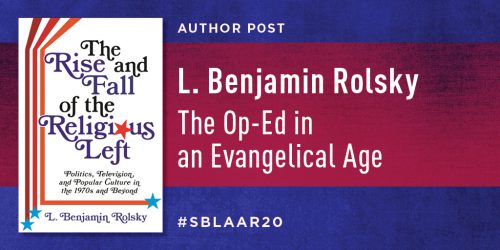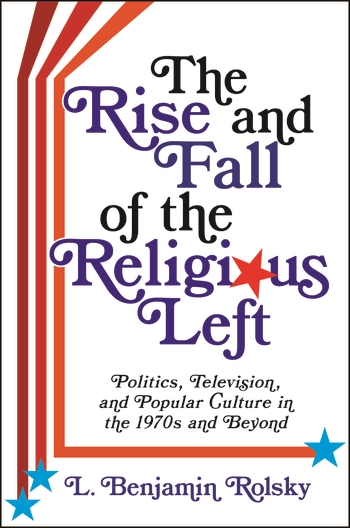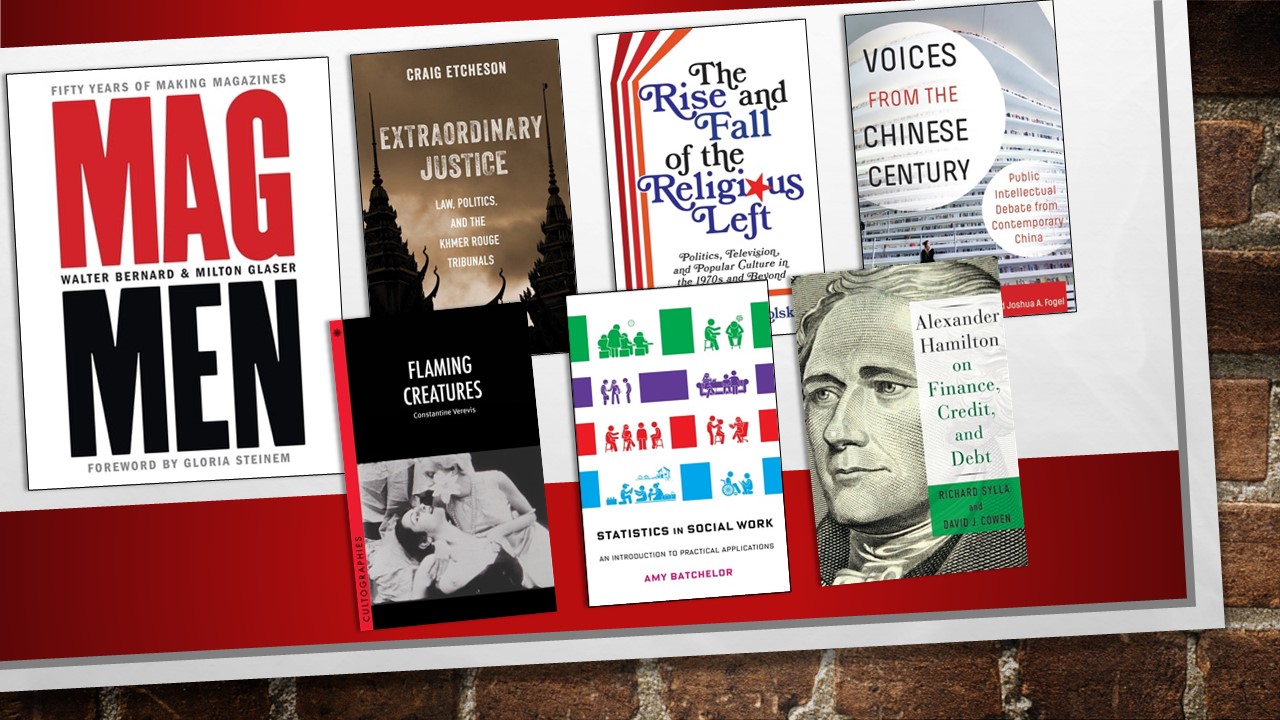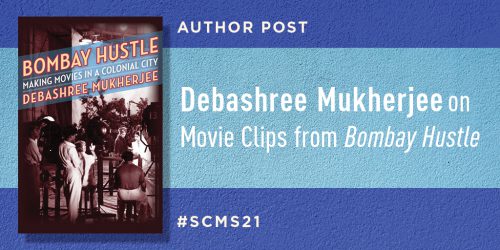L. Benjamin Rolsky on Progressive Patriotism

“Although the religious right looms large in histories of the 1970s, the struggle over religion, politics and culture didn’t unfold only on the right. In this lively and engaging study, Rolsky shows how Norman Lear and People for the American Way advanced a strong spiritual vision of civic life from the left.”
~Kevin M. Kruse, author of One Nation Under God: How Corporate America Invented Christian America
Big Bird and the Muppets are staples of American television, but L. Benjamin Rolsky, author The Rise and Fall of the Religious Left: Politics, Television, and Popular Culture in the 1970s and Beyond, views them through a different lens. These characters were used as a means of spreading patriotic patriotism in the 1982 special, I Love Liberty. In today’s guest blog post Rolsky discusses how this display of patriotism effects popular opinion and why “perhaps we can do better” today.
Enter our drawing for a chance to win a copy of the book!
• • • • • •
Progressive forms of patriotism seem to be in short supply these days. While the American flag has become virtually ubiquitous in our daily lives because of both presidential and commercial interests, this type of patriotism is not a particularly pluralistic one. In many ways, it is patriotism as partisanship in its purest manifestation: a form of patriotic expression forged specifically to embolden culture war in the name of free expression. Many people who gathered around Thanksgiving tables two weekends ago explored these and other subjects, including the likelihood of impeachment as well as the viability of the Democratic presidential candidates. To many, 2020 stands as a year of both great promise and great peril, cautious optimism and a healthy dose of realistic skepticism. What role, if any, can progressive forms of patriotism play during such a contentious election cycle? What would they look and sound like? And, most important, what civic principles would be defended in the face of the social media presidency?
“To many, 2020 stands as a year of both great promise and great peril, cautious optimism and a healthy dose of realistic skepticism. What role, if any, can progressive forms of patriotism play during such a contentious election cycle?”
In my just released book, The Rise and Fall of the Religious Left: Politics, Television, and Popular Culture in the 1970s and Beyond, I explore these questions using the media career of Norman Lear, a television icon, from All in the Family to his nonprofit organization, People for the American Way, to illustrate how religious liberals have articulated a vision of the public good through American popular culture. The last chapter of the book in particular explores the star-studded, prime-time variety show titled, I Love Liberty (1982). The show was conceived by Lear as a patriotic response to the newly ascendant Reagan presidency as well as to the “I Love America” rallies of the previous decade organized by the conservative televangelist Jerry Falwell. Compared to Falwell’s narrative of a uniform Christian nation, Lear’s civil religious vision of American history foregrounded a different set of priorities, ones attuned to both historical context and textual veracity.
The scene opens simply enough. Against the background of an enormous American flag, Big Bird walks into the frame. He tells a few jokes by way of the contentious politics at the time by suggesting a “pro-bird candidate” for president before the actor Martin Sheen discusses the value of turmoil in American political history. As opposed to the conservative narrative of a Christian America, which emphasizes a certain uniformity of memory and storytelling, Lear and others offered a more cacophonous history of America’s founding moments through a conversation between Sheen and Big Bird in prime time. In particular, Sheen pointed to America’s Continental Congress as evidence of the value of debate and deliberation in working out political differences. Upon the conclusion of the clip, which ends with a historical reenactment of the Congress with the help of Jim Henson’s Muppets, one comes away with a feeling of direction and progressive enthusiasm for a “Brotherhood of Men.” In the end, what exactly was Lear after? Did it matter that ABC helped pay for the production of I Love Liberty? And does popular culture actually possess the resources necessary to upend autocracy and challenge white supremacy in precarious times?
“For better or for worse, we live in a world conditioned by Reagan, Archie, and Trump, not in one made by Lear, Roosevelt, and King.”
Lear’s career in media as part of the religious Left is instructive in regards to how questions of politics and patriotism play out in public. In a positive sense, Lear offered a vision of public life from the left built for political persuasion in an age of Reagan. Today, Lear continues to work on behalf of this vision through People for the American Way, Right Watch, and the Norman Lear Center at USC. There is much to learn from Lear’s attention to detail, rigorous work ethic, and willingness to think about messaging and progressive political strategy. What is lacking, however, is any reconsideration of such strategy or accountability for its failures in the public square. Despite a wide audience, Lear’s messages seem to have fallen on deaf ears, at least from the perspective of the latter moments of 2019. For better or for worse, we live in a world conditioned by Reagan, Archie, and Trump, not in one made by Lear, Roosevelt, and King. In our current political climate, religious progressives must carefully consider the rhetorical resources available to them in recrafting a vision of public good for a nation on the brink of culture war and for a planet on the edge of despair. This is no small task, but if the prophetic utterance still possesses power in our twenty-four-hour content cycles and social media streams, then now is the time to draw from its wellsprings in the name of truth and justice. Lear offered one such vision; perhaps we can do better.
Explore more books in the Columbia Series on Religion and Politics series, and save 30% when you order from our website by using coupon code: CUP30 at checkout!








